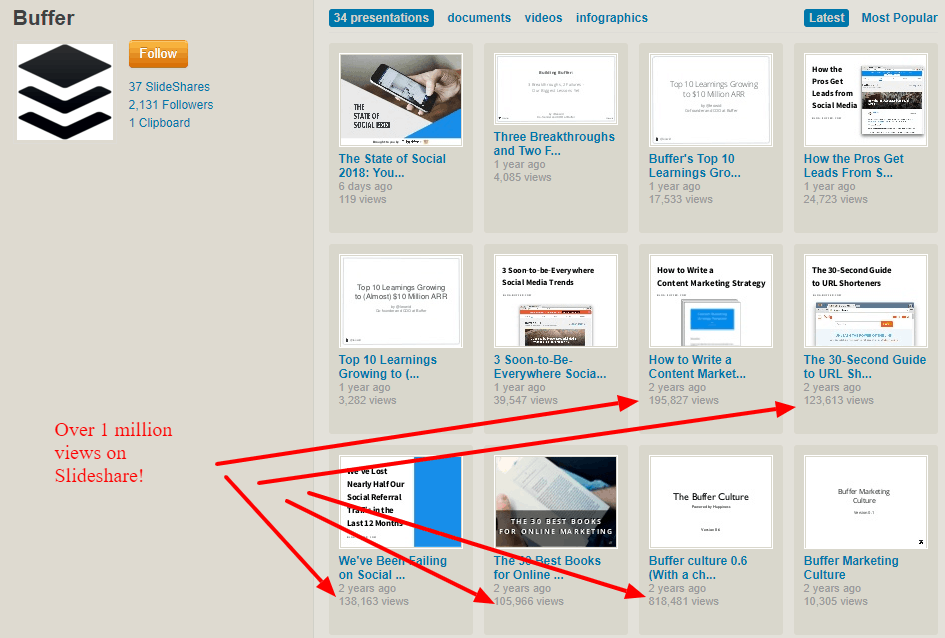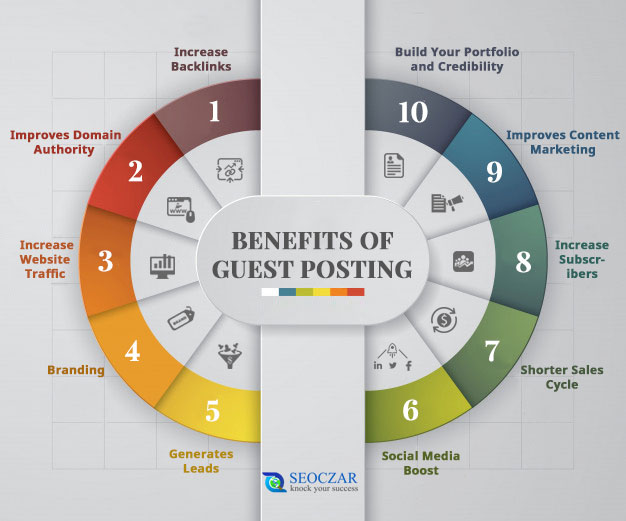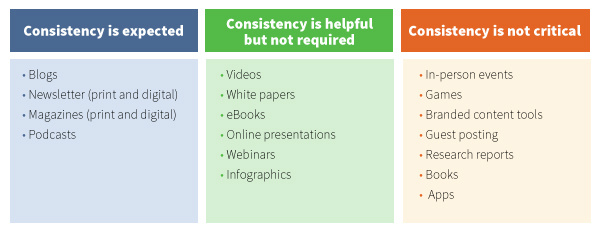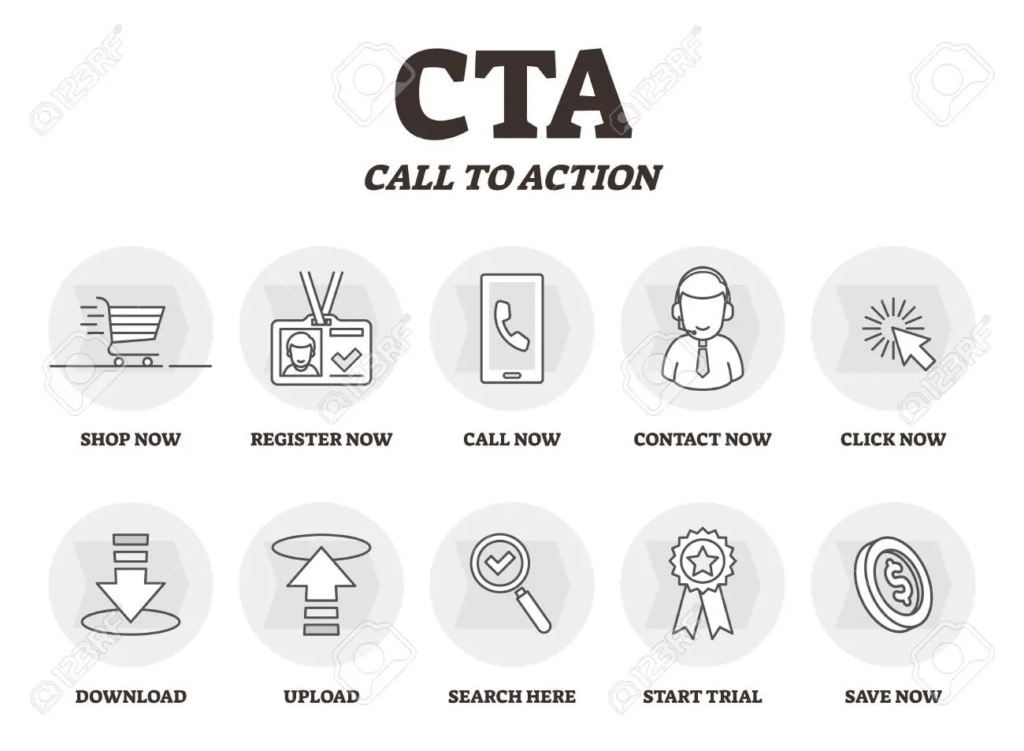5 Content Marketing Lessons To Learn From The Buffer’s Blog

Table of Contents
- What is Buffer?
- 5 Best Content Marketing Examples from Buffer
- Key Takeaways
- Conclusion
- FAQs
Content marketing is a niche that is gaining immense popularity these days. It is quite appropriate to say that content marketing is the fulcrum that moves the wheels of our digital world. With the availability of the Internet and the widespread reach of social media, you can easily reach out to your audience irrespective of their geographical location and time difference. Buffer’s content marketing strategy helped it become one of the most popular blog sites that have adapted well to the changes in online marketing. There is much to learn from Buffer’s content marketing tactics and strategies to adjust to the present marketing landscape.

What is Buffer?
Buffer is a software application designed for the mobile and web. It allows you to manage social media accounts by scheduling posts, analyzing their results, and engaging with your online community.
It began as a Twitter scheduling app and later rolled out its tools for LinkedIn and Facebook. It has transformed into a highly effective social media posting tool, owing to Buffer’s content marketing strategies. Buffer’s impeccable content marketing has attributed to its remarkable growth. Buffer offers its users three applications: Buffer Publish, Buffer Analyze, and Buffer Reply.
To create and schedule posts, you will require Buffer Publish. While Buffer Reply is beneficial for social conversations. It is more of an engagement tool. Buffer Analyze is still being developed, but customers who have subscribed to a Pro Plan can access it.

5 Best Content Marketing Examples from Buffer
Once a simple application, Buffer’s content marketing strategies and its consistency, diligence, and quality content, helped it gain more than 1.2 million users. What is most prominent about the Buffer blog is that they never halted their efforts at improving their content marketing strategy and marketing tactics in general. There are some key lessons that we can learn from Buffer’s blog. Let’s look at some of them:

1. Guest posting
Many marketers think that guest posting is limited to generating backlinks for one’s blog site or socials. But the case is far from true. One of Buffer’s best content marketing strategy examples to keep in mind is guest posts. The Buffer blog focuses on guest posting to build important and meaningful relationships. Their approach to guest posting is all about knowing new audiences and getting in touch with more bloggers/ influencers.
High-quality, well-researched guest posts could be one of Buffer’s best content marketing strategy examples to utilize. It will undoubtedly bring back more viewers and, in turn, lead to accelerated sharing rates. You also need to engage with the guest posts of other bloggers and actively promote their content. In turn, they will very likely be willing to share your content and promote it on their social media channels. Buffer owes much of its content marketing and blogging success to the meaningful relationships it has established over time with this goodwill tactic.
High-profile bloggers and important personalities in the content niche are always ready to share updates and improvements being implemented by Buffer.
Such meaningful relationships are highly beneficial in drawing visibility to your blog post, and eventually to your products/services, most importantly your site.

2. Writing for the right audience
While crafting your blog posts, you should be impeccably aware of who your audience is. Who are you writing for? Your content could be the best blog post ever written, but it will still be ineffective if not written for the right audience. Understand who you will be pitching that message to. Keep in mind your existing customer base, but also remember that they have already bought the product or purchased the services you provide. There are more people in the market or on the Internet who could be potential buyers of your offering.
The Buffer blog realized the importance of this fact quite early and channelized their efforts into creating content for their potential customers. Buffer’s content marketing efforts targeted their possible audience, which in turn were highly likely to interact with other potential buyers. And, its well-executed content marketing strategies led to increased conversion rates.
Create highly shareable content write to people, offering them solutions to their problems that your products and services can solve. This way, your content will reach the right audience and, more than that, a wider audience.
3. Consistency
To keep its momentum building, Buffer implemented the essential element of consistency to its content marketing strategy. Write one brilliant post and then disappear, and no one will remember you. Write good posts spread over a while and consistently keep giving your audience the content they expect and at a time when they wish, based on your publishing schedule, and you will know success. Buffer’s content marketing strategy is rooted in consistency.
It is not enough to write one fantastic blog post, create a deeply-researched guest post for once, or even establish rapport with just one blogger or industry professional in your niche. You need to decide on a strategy and stick to it with the principle of consistency.
In its first year, almost 200 of Buffer’s guest posts were written by Leo Widrich, one of Buffer’s co-founders, alone. Additionally, he was responsible for producing the content for the Buffer blog. The audience started developing a good response to the consistent posting schedule of the Buffer blog, and with time, Buffer’s customer base expanded. Buffer gradually added more content creators and producers and kept its promise of delivering high-quality content consistently.

4. Data-driven content wins in the long run
There are three basic categories of content: one that does not work at all, one that wins the short game, and the one that is successful in the long run. While you should not avoid acing the short-term race, it is not something you should ideally hope for as a business. Short-form content focuses on current, industry-related events and information. More than often, these recent events and scandals evaporate within a week or maximum, a month.
But if consistent and sustainable growth and development are what you want to focus on, long-term content is what you should be working on. Buffer’s content marketing strategies focused on creating an impact for the long run. Long-term content is not only essential for sustainable growth; it can also be repurposed in the future. Even if you want to share your take on a current event or opinion on a particular industry issue or scandal, you should at least have something unique to say about it, other than what is already available on the internet. Encourage a discussion on the topic or share a fresh perspective on it. Reporting on current events is not likely to be remembered by the readers.
Do make a point about an industry issue if you have one; otherwise, it is better to share something else that offers value to your audience and will be relevant even later. Use data and facts to bolster what you have to say on any specific issue. Data-driven, long-form posts have a better content life expectancy.
5. CTAs may not be cool, but they work.
While many marketers categorize CTAs (call-to-action) as a marketing gimmick to garner audience engagement, they are potent marketing tools if used correctly. Poorly structured CTAs will get your content nowhere. In comparison, a well-placed CTA can be harnessed to produce immense value. Well-placed CTAs are bound to be effective. A critical takeaway from Buffer content marketing is placing the CTAs in the right place. If tactically placed, CTAs increase the chances of your content’s engagement.
Apart from being well-placed, it is also important to pay attention to the fact that your CTAs should guide your consumer towards the next right step in the marketing funnel. There are three essential parts of a compelling CTA:
- A compelling CTA offers value.
- It guides your consumer to the next step in an effortless manner.
- And the CTA has to be placed tactically.
Without implementing this, you cannot sit and dream that your content will be shared and re-shared generously by the viewers.


Key Takeaways
- Buffer is a software application designed for the mobile and web. It allows you to manage social media accounts by scheduling posts, analyzing their results, and engaging with your online community.
- Buffer deems guest posts crucial for establishing genuine and meaningful industry relationships.
- While creating content, it is crucial to keep in mind your existing customer base and remember that they have already bought the product or purchased the services you provide. Therefore your content should also appeal to potential customers in your niche. Buffer’s content marketing strategy does both efficiently.
- High-quality, well-researched guest posts will undoubtedly bring back more viewers and lead to accelerated sharing rates.
- It is important that you engage with and actively promote the content of other bloggers and industry professionals.
- You should focus on long-form content for consistent and sustainable growth and development.
- You can use data and facts to bolster what you have to say on any specific industry or niche-related issue. Data-driven, long-form posts are proven to have a higher content life expectancy.
- Poorly structured CTAs will get your content nowhere, while a tactically well-placed CTA is of immense value.
- CTAs should offer value and direct your consumers to the next step in the marketing funnel effortlessly.
Conclusion
Content marketing is not as easy as it appears to be, even with the availability of several tools to leverage the engagement level of your content.
Creating content that stands out requires consistency, patience, and clarity of voice as a marketer/individual or brand. Buffer’s content marketing serves as a great case study to observe and learn content tactics from and implement them in your future marketing strategies.
FAQs
The Buffer blog supports social media platforms like Twitter, Facebook, Google+, Pinterest, and LinkedIn. Buffer is an application that is designed to manage accounts in social networks. It gives its users the means to schedule posts on social media platforms like those listed above.
While Hootsuite gives you more at every plan level, Buffer is the pocket-friendly option. Buffer is cheaper for businesses. Unlike Hootsuite, Buffer allows you more scheduled posts on each social media channel.
The Buffer blog offers several benefits. You can create a custom schedule for each social media platform, plan content using Buffer’s social media calendar, share articles you like using the Buffer browser extension, and more. Buffer Analyze allows you to measure how your social media and blog posts have fared for the week, month, etc. You can also track your top-performing content. Their blog is Buffer’s best content marketing strategy examples to analyze and learn from.
Buffer provides preset slots which you can use to schedule recurring posts. Buffer’s new calendar view is a feature that helps you schedule and publish content on social platforms in a more organized manner. If some of your posts have performed well, you can set them to be reshared using the calendar view. Buffer’s calendar view offers you greater visibility, similar to Google Calendar’s.
If you have an individual account (free), you are limited to 10 posts in the Buffer queue at any one time (this is for each social media platform).
Buffer Publish is a social media management tool. You can use it to manage different social media channels and schedule posts independently for each one. Buffer Publish has a free plan as well as five paid plans.
Latest Blogs
Explore how Google’s 2025 AI search updates triggered ranking chaos. Learn actionable strategies to adapt your SEO for AI Overviews, zero-click searches, and SERP volatility. Stay ahead now.
Learn how to rank on AI search engines like ChatGPT, Perplexity, and Gemini by optimizing your content for authority, structure, and relevance. Stay ahead in AI-driven search with this strategic guide.
Explore the best healthcare SEO services for your medical practice. Improve online visibility and effectively reach more patients in need of your services.
Get your hands on the latest news!
Similar Posts

Content Marketing
4 mins read
11 Best B2B Content Marketing Agencies for B2B Companies in 2024

Content Marketing
5 mins read
Top ecommerce Marketing Agencies with Proven Strategies for 2024

Content Marketing
5 mins read